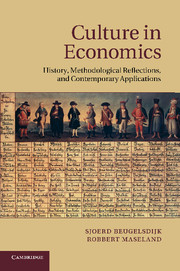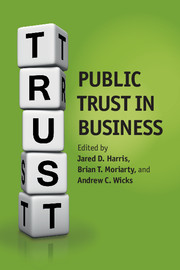Culture in Economics
Many economists now accept that informal institutions and culture play a crucial role in economic outcomes. Driven by the work of economists like Nobel laureates Douglass North and Gary Becker, there is an important body of work that invokes cultural and institutional factors to build a more comprehensive and realistic theory of economic behavior. This book provides a comprehensive overview of research in this area, sketching the main premises and challenges faced by the field. The first part introduces and explains the various theoretical approaches to studying culture in economics, going back to Smith and Weber, and addresses the methodological issues that need to be considered when including culture in economics. The second part of the book then provides readers with a series of examples that show how the cultural approach can be used to explain economic phenomena in four different areas: entrepreneurship, trust, international business and comparative corporate governance.
- Serves as a general introduction to the field with extensive coverage of the empirical literature about culture (values, norms, beliefs) in economics
- Provides historical background to the debate about culture in economics allowing readers to understand the debate's origins and preconceptions
- Covers a broad range of disciplines making sociological, anthropological and historical insights accessible to those working in economics
Reviews & endorsements
"This important new book on culture in economics by Sjoerd Beugelsdijk and Robbert Maseland is most welcome. It fills an important gap in the literature that has only recently been recognised. After decades of sceptical methodological isolationism, economists have come to accept that without reference to people’s systems of norms and beliefs a large part of the differences in performance across populations would go unexplained. I strongly recommend this book to anyone interested in truly understanding economics." - Luigi Guiso, Professor of Economics, European University Institute
"Economic science has its roots in Anglo-American cultural values. With an increasing share of world economic power slipping out of Western hands, there is a crying need for an economic science in which cultural values are treated as a variable. The book by Beugelsdijk and Maseland is a welcome contribution to this development." - Geert Hofstede, author of Culture's Consequences
"A new literature in economics has rediscovered fundamental insights in sociology and is using them to address long standing economic problems. This book does a superb job in placing this new line of research in a broader context, explaining its deep roots and how it opens up fundamental methodological issues. A very timely book that will have a lasting impact on one of the most exciting areas of research in the social sciences." - Guido Tabellini, Professor of Economics, Bocconi University
Product details
January 2014Paperback
9781107684614
410 pages
229 × 152 × 21 mm
0.55kg
3 b/w illus. 12 tables
Available
Table of Contents
- List of figures
- List of tables
- List of textboxes
- Prologue
- Part I. Historical and Methodological Reflections on Culture in Economics:
- 1. Defining culture
- 2. How culture disappeared from economics
- 3. Explaining the rise of culture in modern economics
- 4. Culture in economics: contemporary theoretical perspectives
- 5. A methodological perspective on culture in economics
- Part II. Applications of Culture in Contemporary Economics: Introduction to Part II
- 6. Entrepreneurial culture
- 7. Trust
- 8. International business
- 9. Comparative corporate governance
- Part III. Evaluation:
- 10. Discussion
- References
- Index.







